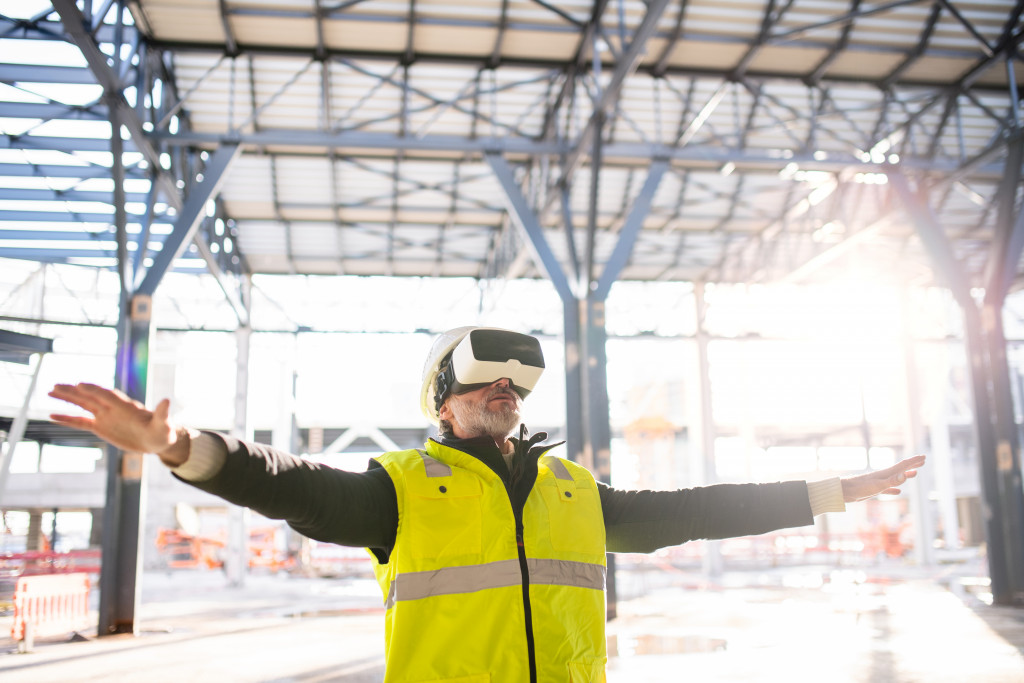In today’s world, technology is playing an increasingly important role in almost every industry. That includes the construction industry, where new technologies transform how projects are planned, executed, and achieved.
From advanced 3D printing to virtual reality (VR) and robotics, today’s construction sites are utilizing tech to drive faster builds with higher quality and fewer mistakes. Let’s take a closer look at how technology revolutionizes the construction industry.
3D Printing
One of the most significant technological advancements in recent years is 3D printing. This technology has allowed projects to move from blueprint to building much faster than traditional methods permitted, thanks to its ability to rapidly print objects using digital blueprints and 3D printing materials such as concrete or plastic.
This technology can be used for everything from creating custom-made furniture for a home remodel to constructing large sections of a building with precision and accuracy. It also eliminates many of the manual tasks typically required when making a building, such as measuring, cutting, drilling, and fitting components together—allowing constructors to complete projects in less time than ever.
Training, Education, and Certification
Construction workers must have specific knowledge and skills to safely and efficiently complete their jobs. Technology has become essential in making training more accessible through online courses and programs.
With virtual reality (VR) simulations, construction workers can gain hands-on experience while avoiding the risks associated with live worksites. Additionally, new certification programs leverage artificial intelligence (AI) to help workers quickly earn their certifications and stay up-to-date on the latest industry standards.
The internet has also made it more accessible for aspiring professionals to book online to get their work certification. For example, in the UK, anyone who wants to work as a construction worker must visit a CITB testing center to complete the test. However, they first need to book online. This ensures they have all the necessary information before going to the testing center.
Virtual Reality (VR)

Another powerful tool being utilized by more contractors is virtual reality (VR). VR allows workers on the ground level to view a project virtually before it is built. This can help them identify potential issues before they become costly problems down the line by allowing them to “walk through” their project from start to finish without actually building it physically.
Additionally, this technology allows supervisors to see what workers see on-site in real-time via remote viewing capabilities, which provides increased safety for those working on-site and improved efficiency by eliminating the need for additional staff members on-site who oversee safety protocols during the build process.
Robotics
Robotics is yet another area where technology has revolutionized the construction industry. Robots have long been used in manufacturing settings. Still, they have only recently started being utilized on larger-scale projects such as roadways and bridges due to their capability of performing complex tasks with precision and accuracy, even in hazardous environments.
Robots also reduce labor costs associated with these types of projects while increasing productivity as robots don’t get tired or require breaks as humans do, which increases overall efficiency when completing large-scale builds over prolonged periods.
Data Analytics
Big data analytics is becoming increasingly crucial for the construction industry, as it allows companies to gain insights from large amounts of data quickly and accurately. With real-time analytics, contractors can monitor various aspects of their projects in real time and make better decisions that could save them a lot of money. For instance, they can track worker productivity, job costs, materials usage, and even environmental conditions such as air and water quality.
Moreover, data analytics can be used to create predictive models for future projects and identify trends in the industry, such as labor costs, supply chain issues, and project delays. This can help contractors better plan their tasks and adjust strategies accordingly to keep them on track and ensure successful outcomes.
Cloud Computing
Cloud computing is also essential in the construction industry, as it allows for data to be stored securely in the cloud rather than on physical networks. This makes it easier for contractors to access information remotely, streamline workflows, and collaborate with other teams or offices.
Additionally, contractors can leverage cloud computing to store 3D designs of their projects to be used in virtual reality simulations. This allows them to test various design options before starting the build process, thus reducing potential problems down the line.
The Bottom Line
Technology has significantly impacted all aspects of our lives—including the construction industry. This impact has allowed projects to move from design to reality faster and more accurately, made training and certification easier and more accessible for everyone, increased safety on the job site, and reduced labor costs through robotic automation. It is clear that technology will continue to revolutionize the way we build in the future.

